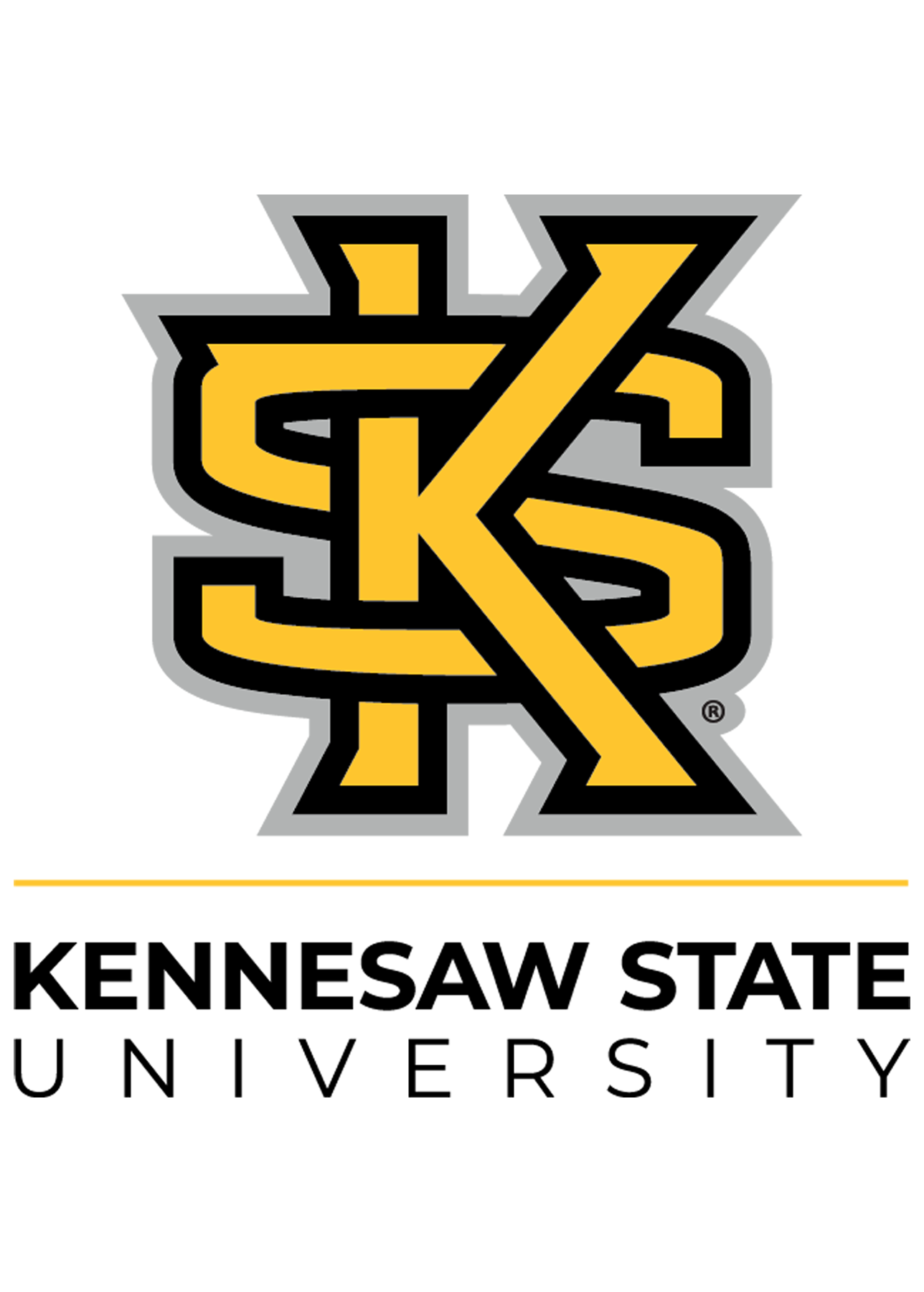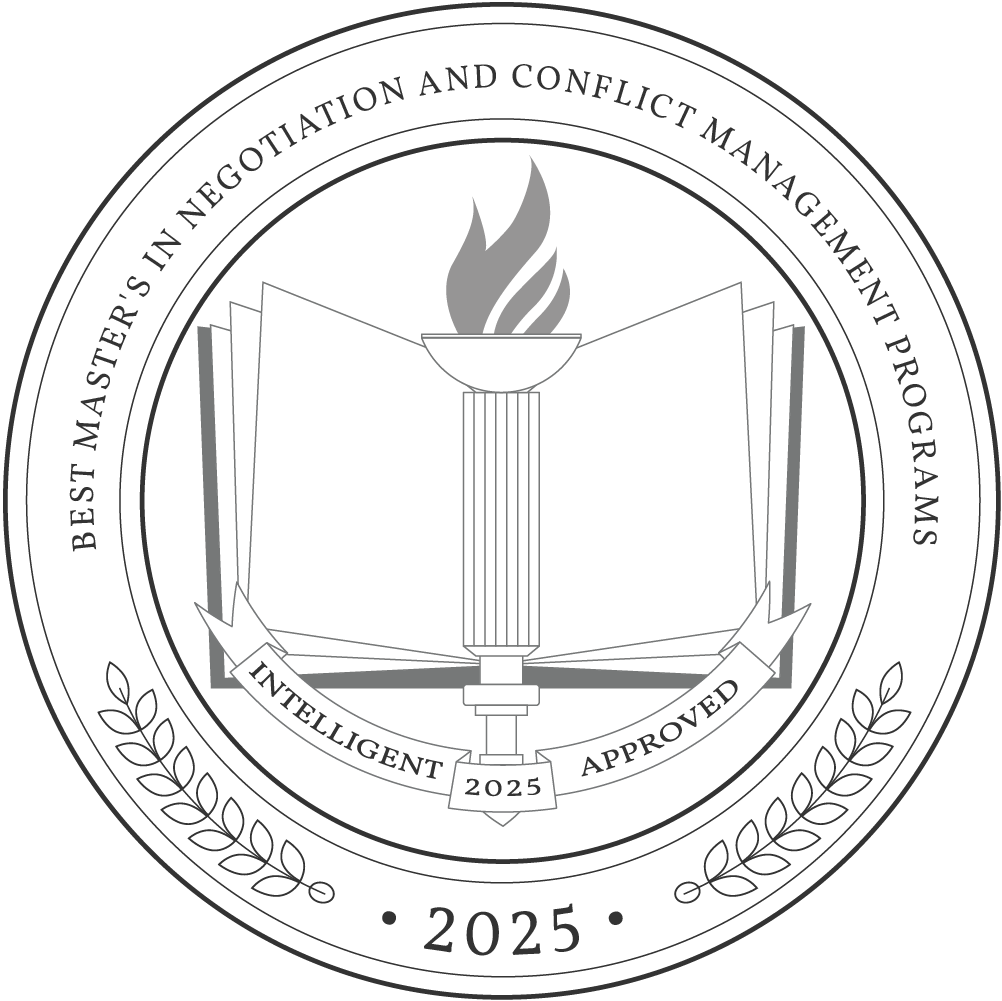If you’re naturally a peacemaker and enjoy helping those on opposite sides see each other’s perspectives, a master’s in negotiation and conflict management degree could help you take the next step in your career.
This degree prepares students to work in a variety of industries, including mediation and arbitration, human resources, and counseling. Arbitrators and mediators earn an average salary of $64,030, while human resources managers earn an average of $130,000 per year.
Most programs require 30-40 credits to graduate, and the average tuition cost for graduate students for the 2021-22 academic year was $19,749.
Why Trust Us
The Intelligent.com Higher Education Team is dedicated to providing students with independent, equitable school and program rankings and well-researched resources. Our expert-driven articles cover topics related to online colleges and programs, paying for school, and career outlooks. We use data from the U.S. Department of Education’s College Scorecard, the National Center for Education Statistics, and other reputable educational and professional organizations. Our academic advisory team reviews content and verifies accuracy throughout the year for the most current information. Partnerships do not influence rankings or editorial decisions.
- Analyzed over 2,000 national, accredited, and nonprofit colleges and universities
- 800+ rankings pages are reviewed and updated yearly
- Content is informed by reputable sources, surveys, and interviews with academic advisors and other experts
- Over 100 data points are reviewed for accuracy and quality throughout the year, including sources
How we rank schools
Our list features the best Negotiation and Conflict Management degree programs at top colleges nationwide. Each school featured is a nonprofit, accredited institution — either public or private — with a high standard of academic quality for post-secondary institutions.
We evaluated each school’s program on tuition costs, admission, retention and graduation rates, faculty, reputation, and the student resources provided for online students. We collected data from trusted sources like the National Center for Education Statistics, individual school and program websites, school admissions counselors, and other data sources. Then, we calculated the Intelligent Score on a scale of 0 to 100 based on the following criterion:
Academic Quality:
- Admission rate versus enrollment rate
- Retention rate of students who return after year one
- Accreditation status (regional and programmatic)
- Nonprofit status, both private and public institutions
Graduation Rate
- Overall graduation rate
- Total number of currently enrolled students, including diversity metrics
- Student-to-faculty ratio
Cost and ROI
- In-state and out-of-state per-credit tuition rates and fees
- Required credits to graduate
- Earning potential after graduation
- Availability of federal student loans, scholarships, and other financial aid options
Student Resources
- Available student services for online-only and hybrid programs
- On-campus amenities like tutoring centers and the number of libraries
Read more about our ranking methodology.
Best 9 Accredited Master's in Negotiation and Conflict Management Degree Programs
FiltersInstitution Type
Status
- Intelligent Score
- Alphabetically By University Name
- Acceptance Rate
- Enrollment
- In-state Graduate Tuition
- Out-of-state Graduate Tuition
- In-state Undergraduate Tuition
- Out-of-state Undergraduate Tuition

Columbia University School of Professional Studies
Intelligent Score: 99.98In-state: $57,864
Out-of-state: $57,864
In-state: $49,024
Out-of-state: $49,024
SAT: 1460-1570
ACT: 33-35
$2,536
On-Campus, Online
Middle States Commission on Higher Education
40

Georgetown University
Intelligent Score: 98.83In-state: $57,384
Out-of-state: $57,384
In-state: $53,136
Out-of-state: $53,136
SAT: 1380-1550
ACT: 31-35
$2,452
On-Campus
Middle States Commission on Higher Education
34

Kennesaw State University
Intelligent Score: 95.1In-state: $4,450
Out-of-state: $15,704
In-state: $5,328
Out-of-state: $5,328
SAT: 1030-1200
ACT: 19-25
In-State: $296
Out-of-State: $1,066
On-Campus
Southern Association of Colleges and Schools Commission on Colleges
36

University of San Diego
Intelligent Score: 94.23In-state: $52,120
Out-of-state: $52,120
In-state: $27,936
Out-of-state: $27,936
SAT: N/A
ACT: N/A
$1,296
On-Campus
Western Association of Schools and Colleges
30

UMass Boston
Intelligent Score: 93.51In-state: $15,791
Out-of-state: $35,779
In-state: $14,014
Out-of-state: $14,014
SAT: 1200-1390
ACT: 27-32
In-State: $403
Out-of-State: $787
On-Campus, Online
Middle States Commission on Higher Education
36

University of Oregon
Intelligent Score: 93.14In-state: $10,962
Out-of-state: $35,881
In-state: $15,417
Out-of-state: $15,417
SAT: 1090-1290
ACT: 22-29
$2,427
On-Campus
Northwest Commission on Colleges and Universities
68.5

University of Baltimore
Intelligent Score: 92.98In-state: $7,014
Out-of-state: $19,374
In-state: $13,824
Out-of-state: $13,824
SAT: 930-1078
ACT: 19-31
In-State: $815
Out-of-State: $1,181
On-Campus, Online
Middle States Commission on Higher Education
36

Salisbury University
Intelligent Score: 92.03In-state: $7,264
Out-of-state: $17,330
In-state: $8,769
Out-of-state: $8,769
SAT: N/A
ACT: N/A
In-State: $428
Out-of-State: $775
On-Campus
Middle States Commission on Higher Education
36

Portland State University
Intelligent Score: 90.37In-state: $7,907
Out-of-state: $25,536
In-state: $14,652
Out-of-state: $14,652
SAT: 1000-1190
ACT: 17-24
In-State: $478
Out-of-State: $705
On-Campus
Northwest Commission on Colleges and Universities
54
How to Choose a Master’s in Negotiation and Conflict Management Degree Program
Choose your area of study
Students pursuing a master’s in negotiation and conflict management have the option of specializing in international conflict, organizational conflict, or conflict management in the justice system. Which option is best for you depends on your career goals and areas of interest. International conflict suits those interested in working for global nonprofit organizations or the government, while students planning on working in mediation could benefit from advanced training on the civil court system.
When choosing an area of study, make sure the program fits with your logistical needs. Check if it’s offered in person, online, or through a hybrid model. Consider whether you’re able to attend full-time or part-time and how the number of required credits impacts how long it will take you to finish.
Research schools and programs
Start narrowing down your search by excluding programs that don’t fit your needs or budget. Check the program’s website to find out what type of program is offered and how many credit hours are required. Take advantage of open houses and information sessions, which are often hosted both in person and virtually to accommodate prospective online students. Always make sure the program has a recognized regional or national accreditation.
If you have specific questions, schedule a meeting with an admissions counselor to ensure you get accurate and up-to-date information on what the program offers, as well as its admissions requirements and costs.
Prepare for tests and applications
Graduate programs usually require fairly in-depth applications. They require transcripts from all higher education institutions you’ve attended, and some schools may require a Bachelor of Science degree or additional science lab courses if you have a Bachelor of Arts. Competitive programs often have minimum undergraduate GPA requirements of 3.0 or above.
Some programs may require a passing score on the GRE, GMAT, or LSAT exam, while other institutions make this optional. Always check with an admissions counselor to determine exactly what you need. Supplemental materials you may be asked to provide include recommendation letters and a personal statement explaining why you want to pursue this option.
Select your program
Once you’ve received your acceptance letters, review your options with your goals and needs in mind. If a remote asynchronous class is most important to you, rule out options that only have in-person instruction. Review the credit requirements, and decide whether you will be able to attend full-time or part-time and how that affects your cost and time commitment. If you’re stuck between two options, consider the classes available, faculty on staff, and what resources the college provides to students to help you decide.
Determine how you’ll pay for your degree
While it’s possible to pay for a master’s in negotiation and conflict management degree out of pocket, there are financial assistance programs worth exploring. Set up a meeting with a financial aid counselor to discuss whether assistantships, scholarships, or private loans may be options for you. Some employers offer tuition reimbursement benefits or partner with certain schools for discounted rates. Make sure to fill out the Free Application for Federal Student Aid (FAFSA) by the deadline every year because scholarships and financial aid programs often use it to determine eligibility.
What Can You Expect From a Master’s in Negotiation and Conflict Management Degree Program?
A master’s in negotiation and conflict management degree teaches students how to identify the underlying cause of conflict and use specific techniques to resolve it. Students learn about the dynamics of interpersonal conflict and how these can apply to business situations and organizational dynamics. It explores concepts like the stages of conflict and negotiation tactics and teaches students to resolve conflict in an ethically and culturally respective manner.
These programs often require field work to ensure students have experience applying their knowledge to actual conflicts. A capstone project or research thesis may also be required. In most cases, students can complete a master’s in negotiation and conflict management degree in 1-2 years if they go full-time. Part-time students can expect to complete their degrees in 3-4 years.
Potential courses you’ll take in a master’s in negotiation and conflict management degree program
- Conflict Theory. This course explains the foundations of conflict theory, including how conflicts arise and escalate. Students will be introduced to an interdisciplinary approach to managing and deescalating conflicts.
- Basics of Mediation. Students taking this class learn about mediation strategies. The course focuses on mediation related to court cases, such as civil and family court matters.
- Workplace and Organizational Conflict. This course teaches students about the dynamics of conflicts within organizations and businesses. Students learn how to identify, analyze, and address conflicts between coworkers or management and employees in an ethical manner.
- Humanitarian Crisis Intervention. Students learn how negotiation and conflict management techniques and strategies can be used to resolve human rights crises and promote peacebuilding. This course may include a review of case studies or simulations to help students replicate and manage conflicts in real-world scenarios.
- Conflict Management Dispute Systems. This course introduces students to the concept of conflict management dispute systems, specifically within business human resources departments. It prepares students to evaluate and improve current systems in an organization as well as create and implement a new system.
Master’s in Negotiation and Conflict Management Degree Frequently Asked Questions
How do I apply to a master's in negotiation and conflict management degree program?
A master’s in negotiation and conflict management degree program requires that you already have a bachelor’s degree from an accredited institution. Because this program awards a Master of Science degree, you may need a Bachelor of Science or be required to take a specific amount of undergraduate credit hours that include labs.
Some schools require that you have a specific score on the GRE, GMAT, or LSAT. However, this may be waived if you already have a master’s degree or had a high GPA (3.5 or above) for your bachelor’s degree. Other application materials often include a resume or CV, a letter of intent, and letters of recommendation. Before you submit your application, meet with an admissions counselor to ensure you understand the program requirements and have the documentation you need.
How much does a master's in negotiation and conflict management degree cost?
The average cost of a Master of Science degree in 2020 was $57,770. However, where you go to school, whether you attend full-time or part-time, and whether it is an in-person or online program can all affect the cost. The average tuition for a graduate degree program was $19,749 for the 2021-22 school year, but this doesn’t include other expenses, such as books or materials.
If you’re attending an in-person or hybrid program, don’t forget to account for the cost of transportation or even relocating if you’re going to an out-of-state school. The best way to get an accurate idea of how much a program costs is to meet with a financial aid counselor at that institution.
How long does it take to earn a master's in negotiation and conflict management degree?
Master’s in negotiation and conflict management programs can have as few as 24 credits or as many as 60, which can have a big impact on how long it takes you to finish your degree. Full-time students will also finish faster than part-time students who can only take one or two courses a semester. Full-time students generally complete their programs in 1-2 years, while part-time students could take 3+ years.
Keep in mind that online and on-campus programs may have different completion times, even if they require the same number of credits. Some programs require students to commit to a cohort, while others let you take classes however they fit best in your schedule.

